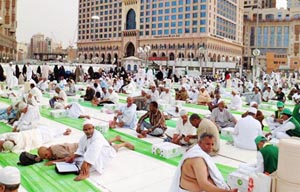Israel will launch a “significant retaliation” to Iran’s missile attack within days that could target oil production facilities inside Iran, Axios reports citing Israeli officials.
The Israeli military late on Tuesday said Iran launched around 180 missiles at its territory, most of which were intercepted.
Iranian media carried online footage of what they said were missiles being fired, which the Islamic Revolutionary Guard Corps said were targeting “three military bases” around Tel Aviv and other bases.
The Revolutionary Guards said “90 percent” of the missiles “hit their targets” late Tuesday.
Israeli Prime Minister Benjamin Netanyahu has vowed to hit back following the attack.
“Iran made a big mistake tonight - and it will pay for it,” he said at the outset of an emergency political security cabinet meeting late on Tuesday, according to a statement.
Washington said it would work with longtime ally Israel to ensure Iran faced “severe consequences” for Tuesday’s attack.
US Secretary of Defense Lloyd Austin spoke to Israeli Defense Minister Yoav Gallant late on Tuesday and said Washington was “well-postured” to defend its interests in the Middle East, the Pentagon said in a statement.
“The minister and I expressed mutual appreciation for the coordinated defense of Israel against nearly 200 ballistic missiles launched by Iran and committed to remain in close contact,” Austin said separately in a post on X.
US Navy warships fired about a dozen interceptors against Iranian missiles headed toward Israel, the Pentagon said. Britain said its forces played a part “in attempts to prevent further escalation in the Middle East”, without elaborating.
The Pentagon said Tuesday’s airstrikes by Iran were about twice the size of April’s assault by Iran on Israel.
A painful response
Israel activated air defenses against Iran’s bombardment on Tuesday and most missiles were intercepted “by Israel and a defensive coalition led by the United States,” Israeli Rear Admiral Daniel Hagari said in a video on X, adding: “Iran’s attack is a severe and dangerous escalation.”
Iran’s forces on Tuesday used hypersonic Fattah missiles for the first time, and 90 percent of its missiles successfully hit their targets in Israel, the Revolutionary Guards said.
In a statement on state media, the general staff of Iran’s armed forces said any Israeli response would be met with “vast destruction” of the latter’s infrastructure.
It also said it would target the regional assets of any Israeli ally that got involved.
Fears that Iran and the US could be drawn into a regional war have risen with Israel’s growing assault on Lebanon in the past two weeks, including the start of a ground operation there on Monday, while its conflict in the Gaza Strip is a year old.
US President Joe Biden expressed full US support for Israel and described Iran’s attack as “ineffective.” Vice President Kamala Harris, the Democratic presidential candidate, backed Biden’s stance and said the United States would not hesitate to defend its interests against Iran.
“We will act. Iran will soon feel the consequences of their actions. The response will be painful,” Israel’s UN Ambassador Danny Danon told reporters.








Comments
Add new comment